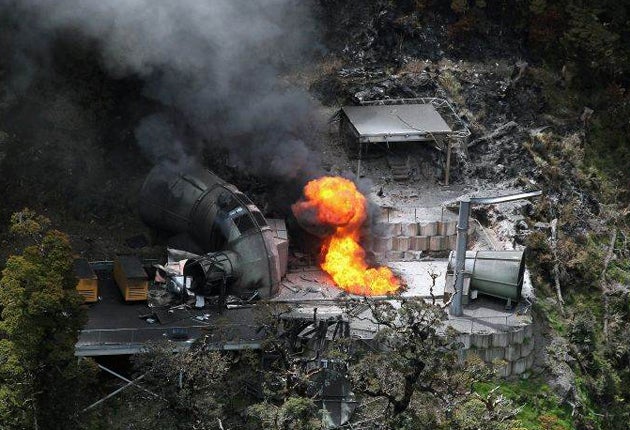Blast at New Zealand mine killed 29 men instantly, inquest told

For five days, the families of the 29 men killed in November's mine explosion in New Zealand believed that they might still be alive – their hopes fuelled by the rescue the previous month of 33 Chilean miners.
It was not until a second blast, which mine authorities said no one could have survived, that those hopes were finally abandoned. But, as some suspected at the time and as a coroner confirmed yesterday, the men – who included two Britons – all died instantly or soon after the initial methane explosion.
At an inquest in Greymouth, the nearest town to the ill-fated Pike River coal mine, the coroner, Neil MacLean, told the men's families that, according to expert evidence, they had died from burns, concussion, suffocation, lack of oxygen or a combination of those factors.
None of that was a surprise to relatives, who are still waiting to bury their loved ones. Two months on, the mine remains too dangerous to enter, and police told the families earlier this month that they had abandoned efforts to recover the bodies.
Criticised for not sending in rescue teams immediately, New Zealand authorities said at the time that they could not risk the lives of emergency workers. The second blast, caused by a build-up of toxic gases, vindicated their caution; now it is a matter of record that there was never any possibility of a rescue.
Who or what is to blame for the 29 deaths is another question, and one that a royal commission hopes to resolve. The commission is expected to begin hearings in March. Several other inquiries are also under way, after which charges may be laid against the company. Pike River has gone into receivership, with most of its employees made redundant.
The chief executive of Pike River, Peter Whittall, attended the four-hour inquest, during which the names of the 29 men were read out. "To hear the names read out and go through that process again today was very heart-wrenching for everyone concerned," he said.
Bernie Monk, who lost his 23-year-old son Michael in the explosion, said the inquest had been very tough for the families. "A lot of us cried, and I'm still crying inside," he said. "It's comforting that we're all together, and we're sticking together, and we all helped each other through that period today."
Superintendent Gary Knowles testified that experts believed gases present in the mine following the first blast would have been similar to cyanide, and would have caused lack of consciousness and death within three to five minutes. The experts also said the men could have suffered asphyxiation, carbon monoxide poisoning, burns and trauma injuries.
Subscribe to Independent Premium to bookmark this article
Want to bookmark your favourite articles and stories to read or reference later? Start your Independent Premium subscription today.

Join our commenting forum
Join thought-provoking conversations, follow other Independent readers and see their replies